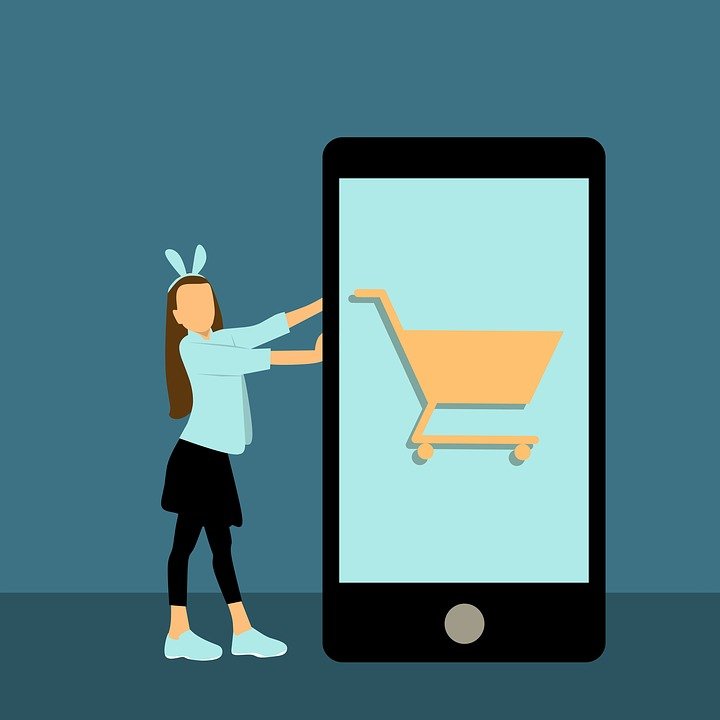In the context of this article, a customer is not a simply consuming unit but an individual with unique or common intentions, thoughts and experiences. A human becomes now the center of the new economy. Such a shift leads to a “win-win” position for all trade participants: customers, retailers and manufacturers.
To avoid general abstract speaking, some practical leverages to change e-commerce shall be uncovered. For example, product matching is on the way to foster the mentioned shift by shaping a clear and convenient shopping environment.
From the very emergence of mass production, the focus was on a manufacturer, its innovations and market-gripping decisions. Releasing new products, targeting new buyers, getting more profits - sounds classical and up-to-date at a time. From a one-sided perspective, when goods are pushed into the market and people are made to buy many goods and even something unnecessary, it seemed an evil to be eradicated. People became parts of the global consumption mechanism - and resulted not only in a simpler pattern of human behavior, but in environmental problems as well. Tons of waste are now a disaster for areas around cities and for the global ocean (for example, The North Pacific Gyre).
Noise is also a pollutant: too much waste information from advertising, spam, social media, etc. Here we go to the next stop of the focus shift. Retailers are in the foreground. Expansion of supermarket chains, online shops and marketplaces are undetachable pieces of the modern reality. And a customer is still an object in this setting, even if we take various surveys, feedback forms, service quality competition into account. The information flow is mainly unidirectional, from a retailer to a customer. Despite the fact that there is a huge choice in shops and buyers have more freedom in making their decisions and define the demand picture, they are often confused with the variety of goods, massive advertisement and possible counterfeit.
A new hope is associated with the rapid development of e-commerce, especially when it is based on blockchain. Such innovation allows for decentralization of manufacturing, sales and even design of goods. At the same time, the blockchain technology makes e-commerce clearer and more reliable due to high degree of data protection. With access to online shops all over the world, a customer is free to buy whatever he or she wants anytime at any price. Such freedom of decision making in addition customer-driven hype waves turns the global market upside down: now a consuming individual is the opinion maker. We have social media, Youtube and other services to share our experiences, find out more about a product and seek the best solution for our needs. Goods are tailored according to the customer needs All of this influences the overall trend of global retail and mass production development. That’s why needs of a single customer are of high importance for those who develop apps, platforms and other e-commerce solutions.
Now let’s look at one of such solutions for e-commerce and the role of product matching in building a brave new e-commerce world. First, what is product matching?
Let’s imagine today’s practice where manufacturers, suppliers, retailers and other e-commerce participants acting as sellers may use different codes (UPC, EAN, MPN or GTIN) for similar products. For example, suppliers add products to a marketplace and use different codes to make records of the same goods. So, lots of offers for one item are created, and customers become confused. It leads to less transparence in the market because of many excessive product cards.
Product matching is a process of comparison and combination of data on the same goods from various suppliers. In the final result, we obtain a unified system of unique product cards. Each card has accurate technical data on the same products and their images.
The logic is simple: no product card doubles - less amount of excessive cards - more usability and transparence for the online market - more satisfaction of end users - stable demand for goods and e-commerce solutions - more trust and mutual benefits in the market.
Product matching is a multipurpose solution provided for both b2c and b2b segments. Individual customers may use applications with integrated product matching to instantly see all offers that suit their requests without repetitions. Offers from different sellers are grouped by identical products, thus a lot of customer’s time is saved. For a customer, it is obvious that all his/her preferences are considered and the chosen product perfectly suits him/her.
For a retailer, the main benefit lies within the ability to cut costs of marketing and promotion since the relevant product could be found easily in the unified system. It means more resources can be spent on customer behavior studies and conformance to the targeted customer needs.
From a manufacturer’s perspective, benefits of product matching implementation are almost the same as those for a retailer, except for one thing - product design and making. Now, a manufacturer has to be flexible and respond quickly to changes in many customer-related factors: actual needs, trends, preferences of the people around, etc. When the market can be represented by means of a matching app within a short time and without any difficulties, it helps any manufacturer to adapt its products.
Customer wins in the given situation, as well as other participants of online trade. Nobody will lose in the game, when played according to the new setting shaped by application of the cutting-edge technologies and account of everybody’s needs.
